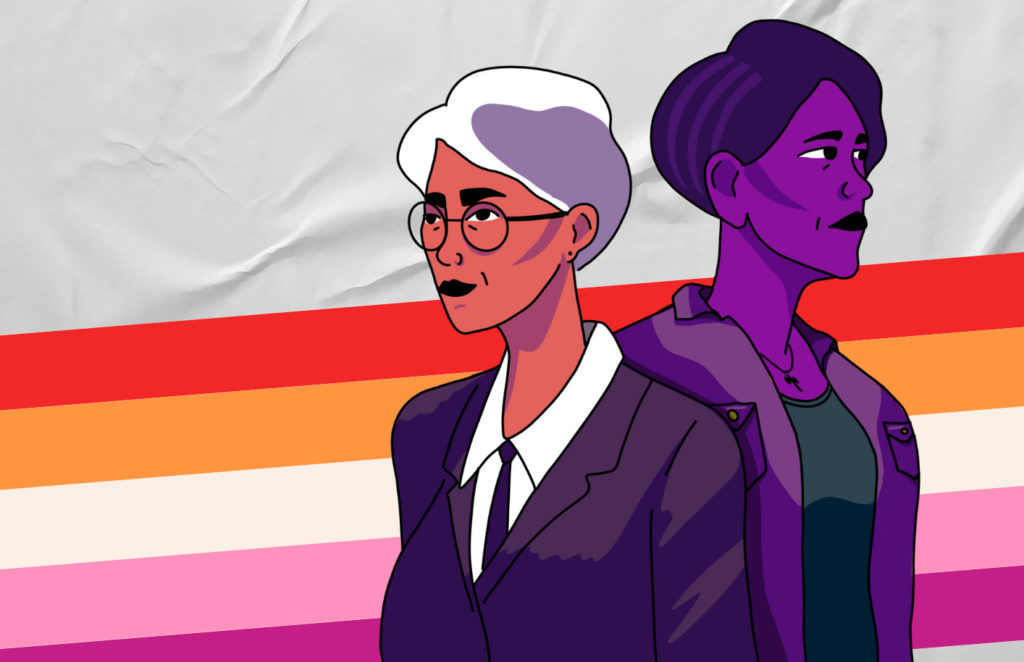Making the Invisible Visible: an analysis of older lesbians lived experiences

The experiences of older lesbians in Europe have been largely invisible in research and society, with little attention paid to their financial situation, access to healthcare and housing, and the impact of discrimination on their lives. EL*C’s groundbreaking report “Making the Invisible Visible: an analysis of older lesbians’ lived experiences” seeks to address this gap by providing qualitative insights, recommendations for policy makers and service providers and by reflecting on the historical circumstances, intersecting discrimination and misconception that influence the decision making of authorities and service providers
The report highlights the limitations of the FRA 2019 LGBTI survey in terms of not adequately representing EL*C’s target group, including lesbians aged 55+. It also notes that women are generally underrepresented in the data, and that the sample sizes for some countries are too small for quantitative analysis. The report employs a multi-methodological approach, including desk research, quantitative analysis of the FRA data, and qualitative interviews to analyze the experiences and needs of senior lesbians in the following European Union member states: Greece, Hungary, Czech Republic, Austria, Italy, Germany, Sweden, France, Spain and Portugal.
Financial insecurity is a major issue for many older lesbians, at the intersection of different societal phenomenona, with women in general tending to be in temporary, part-time or precarious employment, and LGBTI older persons at greater financial risk. Lesbian retirees and women-only households face heightened exposure to precarious employment, contributing to the gender pension gap and old age poverty. Patriarchal pension systems benefit men who were married, while senior lesbians struggle with financial insecurity and isolation.
Older lesbians also face discrimination in healthcare systems, with misogyny being a key factor. Discrimination impacts general health, with many senior lesbians facing unmet healthcare needs due to minority stress and exclusionary healthcare. Mental health issues, including depression, are common.
Housing is another area of concern for many older lesbians, with 19% experiencing difficulties in this area, which is higher than cis men of the same age range. Access to private property may be limited due to family rejection and marriage laws. Discrimination in care facilities is also prevalent, with many older lesbians fearing being forced to hide their identity. Senior lesbians often do not feel comfortable in “mainstream” senior spaces,may fear how others will react negatively and are therefore forced back into the closet.
Lesbian activists and their allies featured in this research have found solutions to the many issues highlighted in this research. Lesben und Alter, a lesbian organisation focusing on older lesbian in Germany, provides help and support, creates community and organises training for healthcare and longcare professionals. Individual activists and informal groups are very active in the EU. LGBTI, feminist and elderly organisations in Greece, Spain, Sweden, Czech Republic and Portugal are including a lesbian and gender-aware perspective in their work.
Many older lesbians have had to face systematic discrimination and violence in their lifetime, both in society and within their families of origin. Thus, they were obliged to mobilise resources, find creative solutions and develop strong intergenerational networks to cope with this situation and with unwanted loneliness. Much more can be done, and it is now time that older lesbians are supported in this endeavor. For this reason, the report highlights the need for more actions from public authorities and academic institutions.
Read the full report: Making-the-Invisible-Visible-an-analysis-of-older-lesbians-lived-experiences_ELC-research
